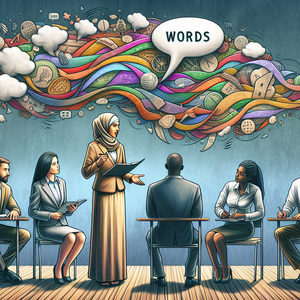Celebrating Diversity: Minority-Owned Businesses in Rochester

Rochester is renowned for its diverse population, which includes a vibrant mix of racial and ethnic backgrounds. This cultural diversity is reflected in the entrepreneurial spirit that thrives within the city. Minority-owned businesses are prevalent across various sectors, including retail, food service, technology, and health care. Each of these businesses offers unique cultural influences and perspectives, contributing to Rochester's economic tapestry. For instance, local establishments such as Dorado, a restaurant specializing in Latin cuisine, and Rochester Spice, run by immigrant entrepreneur Ahmed Khan, highlight the rich culinary diversity present in the city. Furthermore, Creative Roots, a marketing agency founded by Latina entrepreneur Sofia Ramirez, showcases how minority-owned businesses can leverage unique cultural insights to create impactful marketing strategies that resonate with diverse audiences.
Challenges Faced by Minority Entrepreneurs
Despite their contributions to the local economy, minority entrepreneurs often encounter significant obstacles. One of the primary challenges is access to capital. Studies indicate that minority-owned businesses are less likely to receive funding from traditional banks, often leading to financial struggles. Systemic barriers such as discrimination and a lack of mentorship opportunities can further hinder their growth. A poignant example is the experience of Maria Johnson, an African-American entrepreneur who faced difficulties securing loans for her bakery, Sweet Heritage. Despite possessing a solid business plan and a loyal customer base, Maria's journey reflects a broader issue faced by many in the minority business community. Such experiences underscore the need for more inclusive funding practices and resources tailored to support minority entrepreneurs.
Success Stories: Overcoming Obstacles
Resilience is a defining characteristic of minority entrepreneurs in Rochester. Many have not only overcome these challenges but have also thrived in their respective industries. Ahmed Khan's Rochester Spice serves as a testament to this resilience. Specializing in spices and sauces from around the world, Ahmed's commitment to quality and community engagement has helped him build a loyal customer base, transforming his small storefront into a thriving business that now supplies local restaurants. Similarly, Sofia Ramirez's Creative Roots has gained recognition for its innovative approach to branding and social media. By tapping into her cultural heritage, Sofia has created marketing strategies that resonate with diverse audiences, further exemplifying how minority-owned businesses can leverage unique perspectives for success. These success stories not only highlight individual achievements but also inspire others in the minority community to pursue their entrepreneurial dreams.
The Impact of Minority-Owned Businesses on the Community
The contributions of minority-owned businesses extend beyond economic statistics; they play a crucial role in fostering community engagement and cultural exchange. These enterprises often serve as cultural hubs, providing spaces for community gatherings, celebrations, and education. For example, Cultural Connections, a community center run by a coalition of minority business owners, hosts events that celebrate the rich cultural heritage of Rochester’s diverse population, encouraging connection and collaboration. Moreover, minority entrepreneurs frequently give back to their communities through mentorship and support programs aimed at empowering aspiring business owners. By sharing their experiences and offering guidance, they help cultivate a new generation of entrepreneurs, creating a cycle of empowerment that strengthens the community and promotes economic development.
Rochester’s minority-owned businesses are essential to the city's identity and economic vitality. They navigate unique challenges while celebrating their successes and contributing to a rich tapestry of culture and community. By supporting these entrepreneurs, Rochester can continue to foster an inclusive environment that values diversity and innovation. As we recognize and celebrate the achievements of these businesses, we acknowledge their significant role in shaping the future of Rochester—a future that is brighter, more inclusive, and rich with diverse perspectives. In conclusion, the stories of minority entrepreneurs in Rochester are not just tales of individual success; they are integral to the larger narrative of the city. By embracing and uplifting these voices, Rochester can ensure that its economic landscape reflects the richness of its diverse population, ultimately leading to a more vibrant and cohesive community.
Community Development Coordinator
Core Responsibilities
Develop and implement programs that support minority-owned businesses and foster community engagement.
Collaborate with local organizations to identify resources and opportunities for minority entrepreneurs.
Organize workshops, seminars, and events that promote cultural awareness and business development.
Required Skills
Strong communication and interpersonal skills to liaise with diverse community groups.
Experience in project management and community outreach.
Knowledge of funding opportunities and grant writing.
Common Employers
Local government agencies
non-profit organizations
community development corporations
Diversity and Inclusion Consultant
Core Responsibilities
Assess and enhance diversity initiatives within organizations, focusing on minority-owned businesses.
Provide training and workshops on cultural competency and inclusive practices.
Develop strategic plans to improve representation and support for minority entrepreneurs.
Required Skills
Expertise in diversity, equity, and inclusion best practices.
Strong analytical skills to evaluate organizational policies and practices.
Experience in facilitation and public speaking.
Common Employers
Consulting firms
corporate diversity offices
non-profit organizations
Small Business Grant Writer
Core Responsibilities
Research and identify grant opportunities specifically aimed at minority-owned businesses.
Write compelling grant proposals that articulate the needs and potential of minority entrepreneurs.
Manage grant applications and reporting requirements to ensure compliance with funder guidelines.
Required Skills
Exceptional writing and editing skills to convey complex ideas clearly and persuasively.
Knowledge of funding landscapes and grant application processes.
Ability to work collaboratively with business owners to gather information and insights.
Common Employers
Non-profit organizations
community foundations
economic development agencies
Social Media Marketing Specialist for Minority-Owned Brands
Core Responsibilities
Develop and execute social media strategies that highlight minority-owned businesses and their unique offerings.
Create engaging content that reflects the cultural heritage and values of the businesses.
Analyze social media metrics to measure the effectiveness of campaigns and refine strategies.
Required Skills
Proficiency in social media platforms and tools, including content creation and analytics.
Strong understanding of branding and marketing principles, especially in culturally diverse contexts.
Creativity and an eye for design to create visually appealing content.
Common Employers
Marketing agencies
in-house marketing teams for minority-owned businesses
freelance opportunities
Cultural Events Coordinator
Core Responsibilities
Plan and manage cultural events that celebrate diversity and promote minority-owned businesses within the community.
Collaborate with local artists, musicians, and business owners to create engaging programs and activities.
Oversee event logistics, including budgeting, marketing, and community outreach.
Required Skills
Strong organizational skills with the ability to manage multiple projects simultaneously.
Excellent networking and relationship-building abilities to engage community stakeholders.
Experience in event planning and marketing strategies.
Common Employers
Community centers
cultural organizations
local governments


